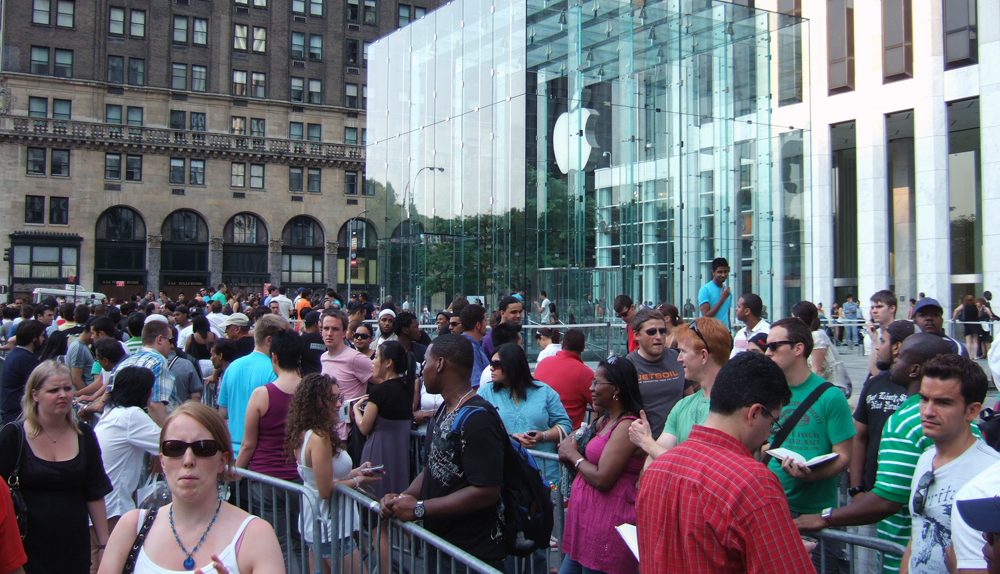Every year or so, observers who marvel at how many people will line up outside Apple stores for hours wonder what the company’s secret is to garnering such amazing devotion. There has even been some conspiratorial speculation that Apple intentionally degrades the performances of its older iPhone models just prior to new ones coming out to give users an extra incentive to shell out for a new device. The Huffington Post’s Timothy Stenovec is the latest writer to take a look at this idea, although he doesn’t go so far as to say that Apple is intentionally making older iPhones perform worse in a cynical effort to squeeze more cash from its users.
RELATED: Don’t install iOS 8 on your iPhone 4s or iPad 2 just yet
However, he doesn’t let Apple off the hook and notes the problems that people have had with iOS 8 on older devices — in particular on the iPad 2 and iPhone 4S — do suggest that Apple is inadvertently benefitting from these issues because they make people more likely to upgrade to the latest device.
“Apple designs the new operating systems, which have more features, take up more space and require more computing power, for the new iPhones,” he writes. “And a consequence of that is they don’t work as well on older iPhones. The system has been pretty successful for Apple. iPhone owners in the U.S. tend to shell out big bucks for a new iPhone about every two years (which, not coincidentally, is also the length of the traditional wireless contract.)”
Of course, if it were really case that consumers felt that Apple had been pushing them against their wills to buy new iPhones, we wouldn’t see the insane amount of hype for the new devices every year. iPhone fans don’t just wait outside of stores for days on end because they’re grudgingly buying a new device after Apple’s software updates ruined their old ones — they’re doing it because they just want a new iPhone.
That said, the release of iOS 8 really has been surprisingly buggy so far, which along with huge storage requirements seems like one reason that its adoption rate is so low compared with iOS 7. Wall Street Journal technology columnist Christopher Mims tells The Huffington Post that the lesson to take away from here is that if you’re happy with your older iPhone, you should just not install major new software updates.
“The only time you should [update your OS] is when critical apps stop working and demand you upgrade to the new OS,” Mims explains. “Apple has always been like this. It was true with Macs, now it’s true with iPhones. Incremental upgrades are fine. But whole number upgrades? Just don’t. You get them when you get a new phone.”






